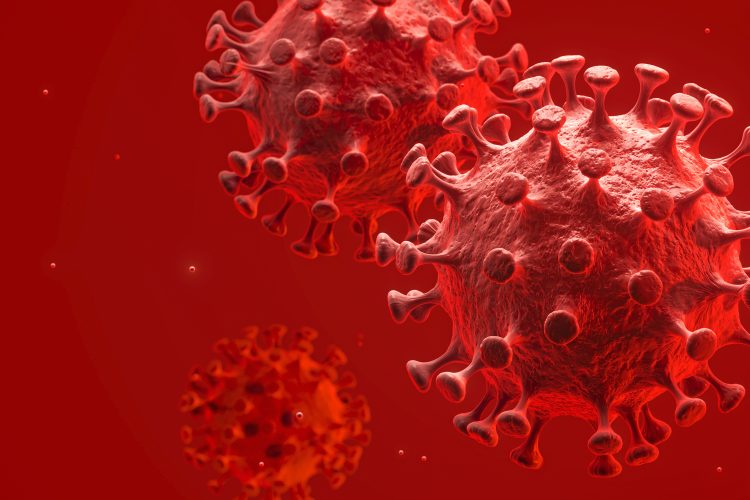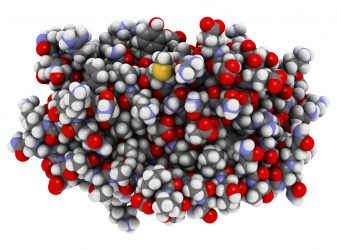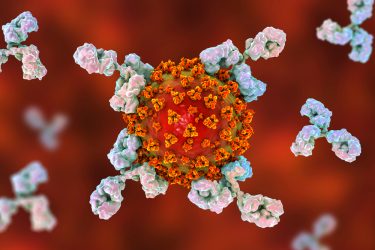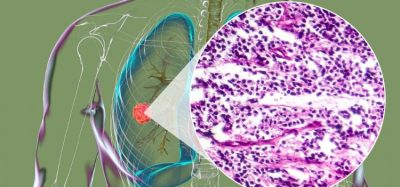Siltuximab – testing a potential COVID-19 therapy
Posted: 16 April 2020 | Victoria Rees (European Pharmaceutical Review) | No comments yet
Interim results from the SISCO study at the Papa Giovanni XXIII Hospital in Italy have demonstrated the promise of siltuximab as a treatment for the symptoms of COVID-19. Lee Morley explains how the drug works and the next steps for its development.


The preliminary findings from the SISCO (Siltuximab In Serious COVID-19) study have revealed that seven of the first 21 patients treated with siltuximab experienced a clinical improvement in their COVID-19 symptoms with a reduced need for oxygen, while nine patients saw their condition stabilise.
Although this is interim data, the developers of the drug at EUSA Pharma say the results are promising for the treatment of COVID-19.
European Pharmaceutical Review’s Victoria Rees spoke with Lee Morley, Chief Executive Officer of EUSA Pharma, to reveal why this trial is so important and what its results mean for COVID-19 patients worldwide.
The SISCO study
…siltuximab is an IL-6 inhibitor, so prevents the elevation of IL-6 that occurs as part of the cytokine storm”
Conducted at the Papa Giovanni XXIII Hospital in Italy, the SISCO trial is investigating the use of siltuximab in patients with the COVID-19 coronavirus. The drug is being used to treat patients who have developed serious respiratory complications, which is the leading cause of death for COVID-19.
SISCO is an observational centre, single-centre, case-controlled study of siltuximab treatment, involving 25 patients, with preliminary data presented for 21. All patients in the study were treated with siltuximab at a dose of 11mg/kg infused over one hour with a potential second dose at the physician’s discretion. Of the 21 patients, five received a second dose 48-72 hours following the initial infusion.
The findings from the study show that 76 percent of the patients treated with siltuximab had either stabilised or improved disease symptoms at the interim analysis.
In all patients, C-reactive protein (CRP) levels, a marker of systemic inflammation, were found to decline in the patients from the first day through to the fifth day following treatment. According to the researchers, this level of reduction was maintained in the patients seven days after receiving siltuximab.
Morley commented that the issues that drive inflammation, the interleukin (IL)-6 and CRP levels in particular, were reduced to normal levels within five days of treatment. However, he noted that the data released from the study is only preliminary and case-controlled studies still need to be conducted. Despite this, he said that the “encouraging data” indicates siltuximab could be a promising drug candidate for COVID-19 symptoms.
In the other patients from the preliminary study, a worsening of the disease was observed in three whilst one patient died and one experienced a cerebrovascular event.
Professor Alessandro Rambaldi, Study Sponsor-Investigator at Papa Giovanni XXIII Hospital, said: “The team at Papa Giovanni XXIII Hospital are pleased to share these preliminary observational data. Whilst we are yet to identify and analyse the control group of patients, these initial data in siltuximab-treated patients provide vital information to guide decisions regarding the appropriate use of siltuximab in both the real-world and new COVID-19 studies as we continue to investigate the role IL-6 blockade can play. Importantly, these preliminary uncontrolled data confirm high levels of IL-6 at baseline, with baseline CRP also high but declining rapidly with siltuximab treatment, suggesting a role for monoclonal antibodies (mAbs) as a possible therapeutic strategy for this potentially fatal infectious disease.”
The siltuximab drug


Interleukin-6
Siltuximab is an IL-6 targeted mAb that has been approved by the US Food and Drug Administration (FDA) and the European Medicines Agency (EMA), among other regulatory bodies, for the treatment of patients with multicentric Castleman disease (MCD) who are human immunodeficiency virus (HIV) and human herpesvirus-8 (HHV-8) negative.
Some emerging evidence indicates that some patients with COVID-19 may respond with overproduction of IL-6, an inflammatory cytokine, leading to a cytokine storm – when the immune system becomes overstimulated and attacks the patient’s own body. Elevated IL-6 levels are associated with severity of disease and can lead to serious lung complications and/or Acute Respiratory Distress Syndrome (ARDS), which is the leading cause of mortality in patients with COVID-19.
Morley explained that siltuximab is an IL-6 inhibitor, so prevents the elevation of IL-6 that occurs as part of the cytokine storm responsible for driving the high CRP levels. As certain patients with COVID-19 develop pneumonia-associated symptoms, there is a growing risk of mortality, particularly with patients in the intensive care unit (ITU) setting. Therefore, potentially reducing COVID-19 disease progression with siltuximab may prevent patients developing serious symptoms and entering ITU and may also allow patients to leave the ITU setting at an earlier stage
Although not a curative therapy, Morley highlighted that by reducing respiratory complications, siltuximab may address one of the “key issues” associated with COVID-19.
The next steps
Morley said that siltuximab could help patients in a dire state to maintain lung function and hopefully move them out of the ITU setting, freeing up the ITU or pre-ITU wards to take in more patients.


He said that the step after this is to conduct a much larger trial to fully understand the use of siltuximab in COVID-19 patients. Currently, EUSA Pharma is in discussion with various centres to initiate this trial hopefully within the coming weeks.
Conclusion
“The impact is significant here; not only is there the potential to save people from deteriorating and ultimately dying, but also helping people recover that little bit quicker to free up the critical care beds across the globe,” concluded Morley.
The important data being shared by EUSA Pharma will aid the healthcare community across Europe and around the world: “We need to work quickly, but we need to work in a collaborative manner,” asserted Morley.
Related topics
Antibodies, Clinical Development, Clinical Trials, Drug Development, Research & Development (R&D), Viruses
Related organisations
European Medicines Agency (EMA), EUSA Pharma, Papa Giovanni XXIII Hospital, US Food and Drug Administration (FDA)









